Resultados generales: Tendiendo puentes entre políticas sociales y de inclusión productiva
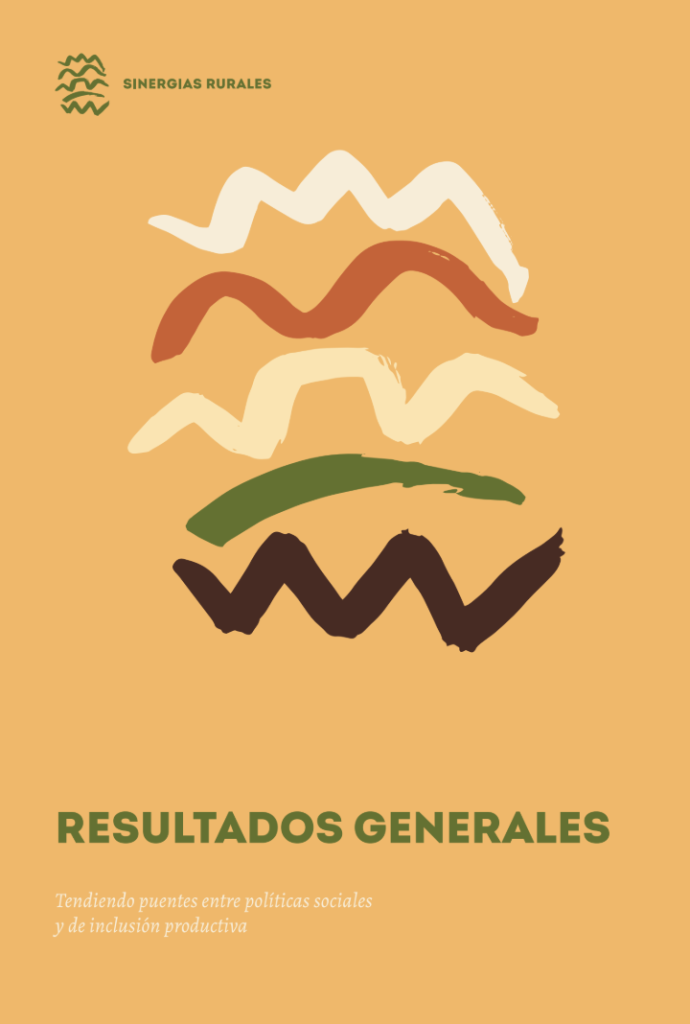
Sinergias entre programas de protección social y desarrollo productivo rural. Resultados y recomendaciones de la
experiencia de América Latina y África
Africa: Building bridges between social and productive inclusion policies
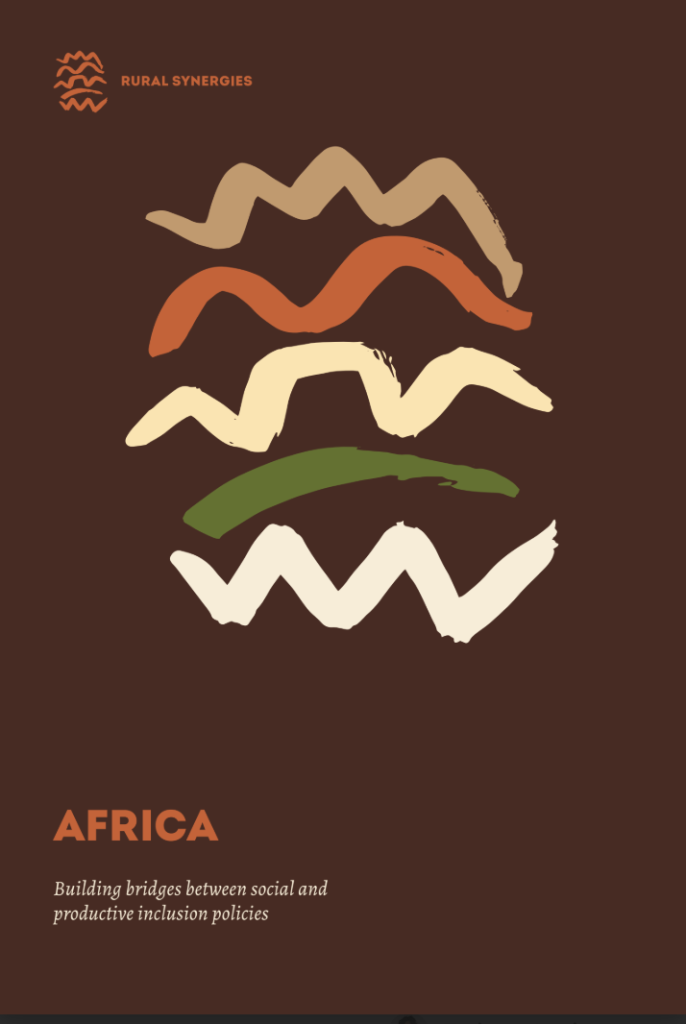
Strengthening coherence between social
protection and productive interventions in
four African countries
Latin America: Building bridges between social and productive inclusion policies
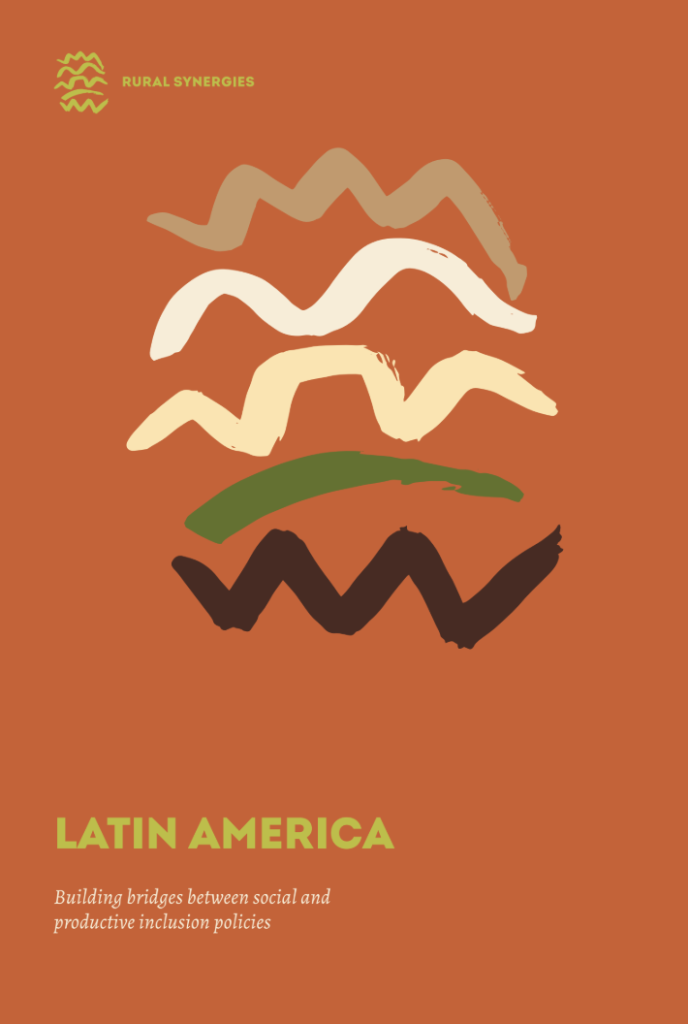
Coordination between social protection and rural productive development programmes in three Latin American countries. Proposals to harness the potential of synergies
América Latina: Tendiendo puentes entre políticas sociales y de inclusión productiva
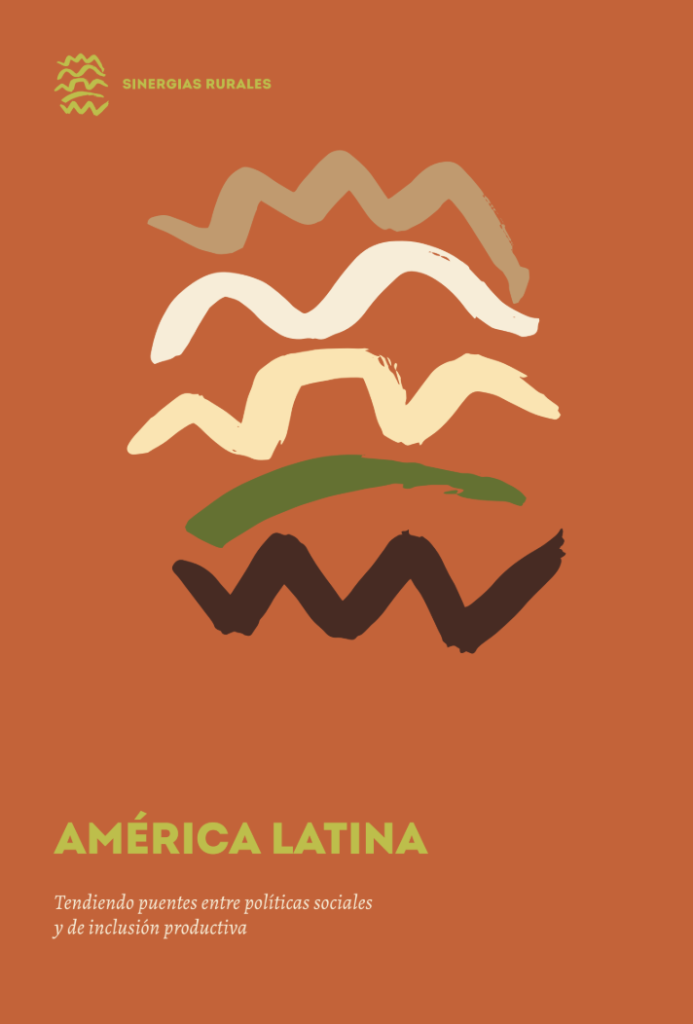
Articulación entre programas de protección social y desarrollo productivo rural en tres países de América Latina.
Propuestas para aprovechar el potencial de las sinergias
Evaluaciones de Impacto: Tendiendo puentes entre políticas sociales y de inclusión productiva
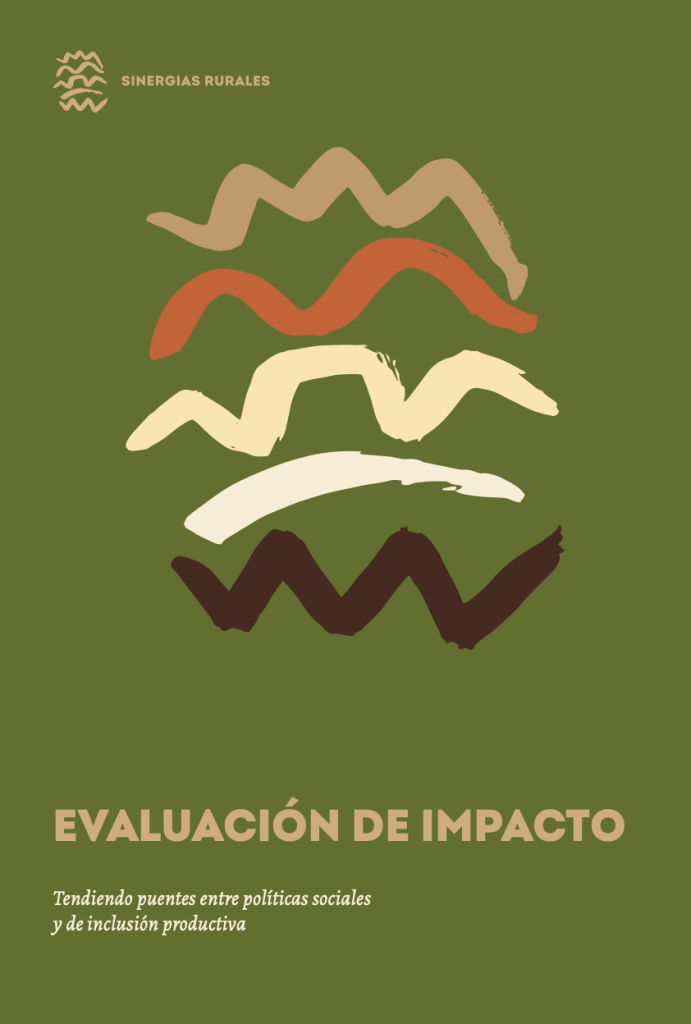
En este documento se realiza una síntesis de los principales resultados de las evaluaciones de impacto
implementadas en seis países del estudio: Colombia,Perú, Malí, Zambia, Lesoto y Etiopía.
Análisis Institucional: Tendiendo puentes entre políticas sociales y de inclusión productiva
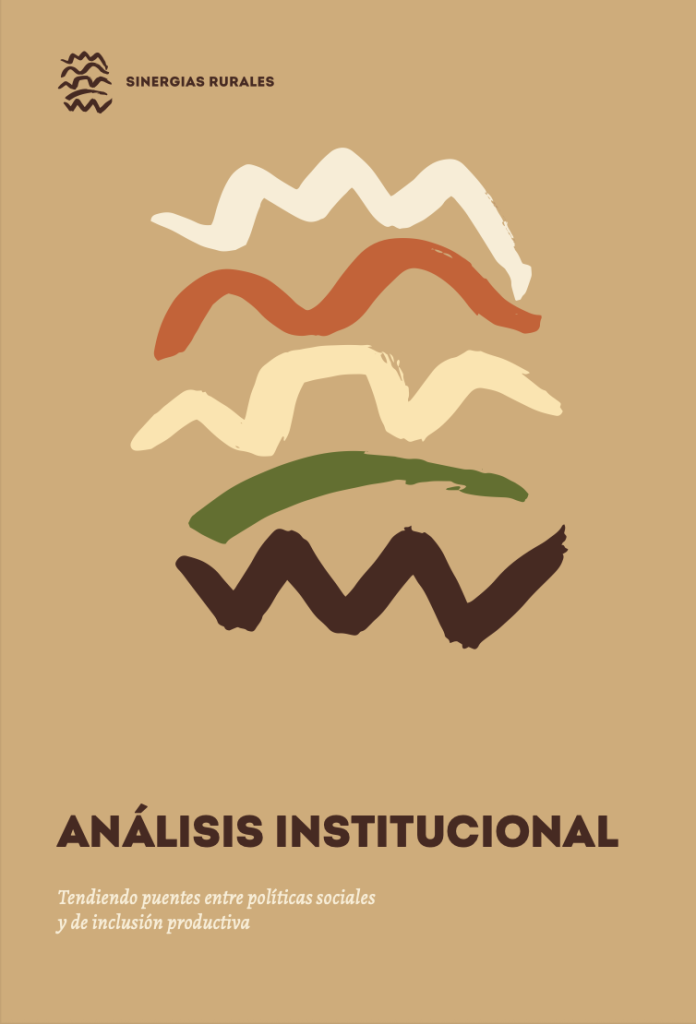
Este documento presenta los resultados del análisis institucional que se realizó en Colombia, México, Perú, Etiopía, Lesoto y Malí, con el propósito de analizar los mecanismos institucionales, formales e informales, que aportan a la efectividad de la articulación entre programas y/o componentes de protección social y desarrollo productivo rural. El documento describe los casos analizados, los aspectos comunes de estas experiencias en términos de articulación y recomendaciones.
Institutional analysis: Building bridges between social and productive inclusion policies
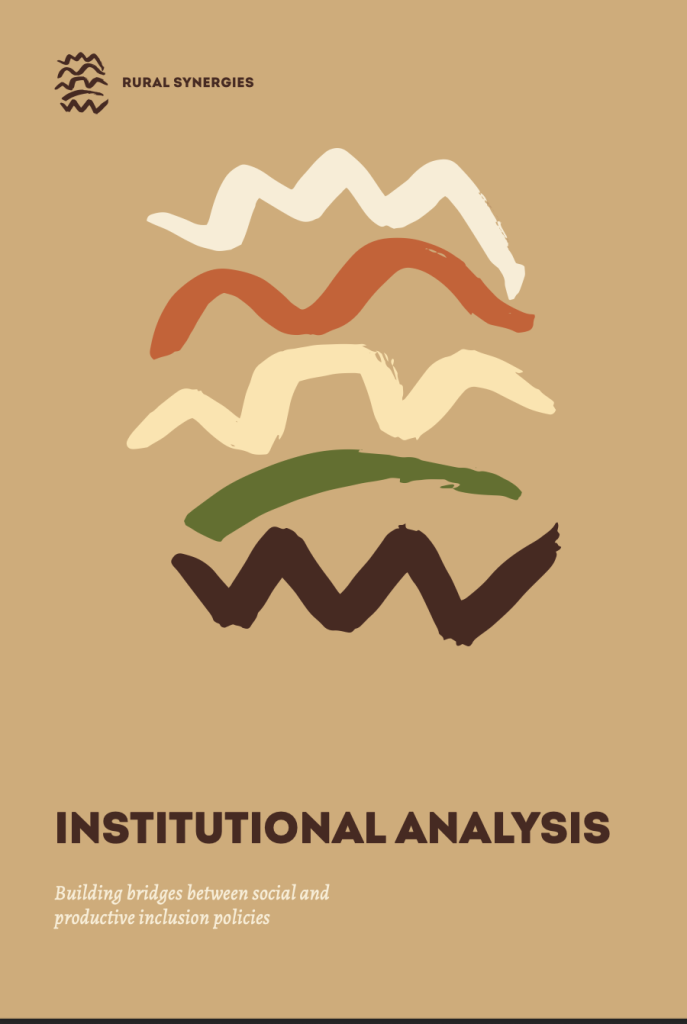
This document presents the results of the
institutional analysis that was carried out in Colombia, Mexico, Peru, Ethiopia, Lesotho and Mali, with the purpose of analysing the institutional, formal and informal mechanisms that contribute to the effectiveness of the coordination between programmes and/or components of social protection and rural productive development.
Impact Evaluations: Building bridges between social and productive inclusion policies
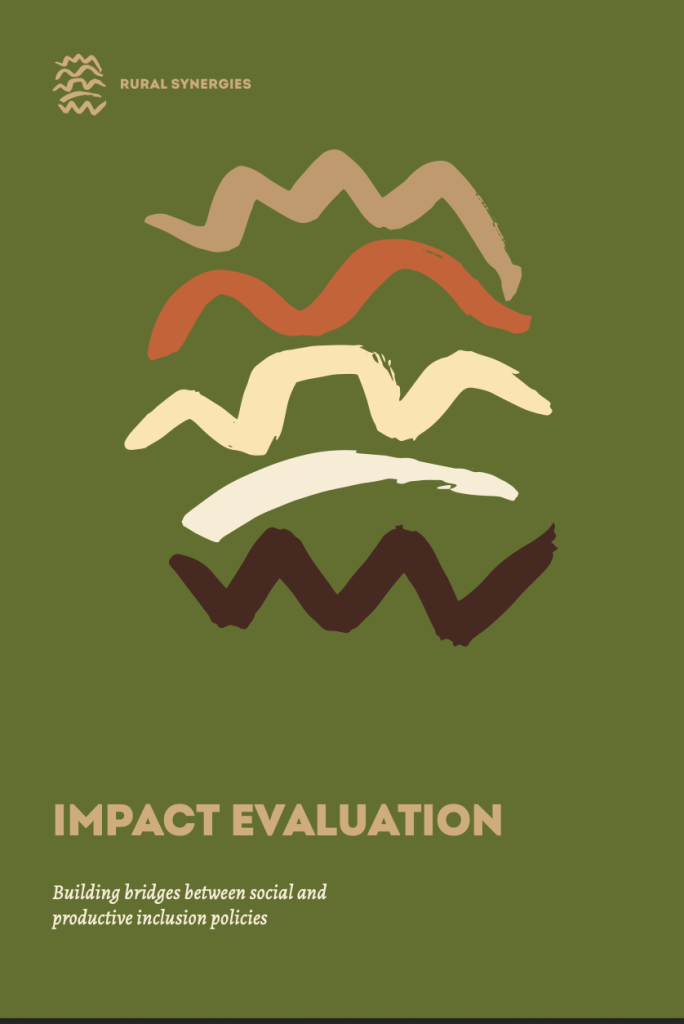
This document summarises the main results of the impact evaluations implemented in the six countries included in this study: colombia, ethiopia, lesotho, mali, peru and zambia
Ethiopia: Building bridges between social and productive inclusion policies
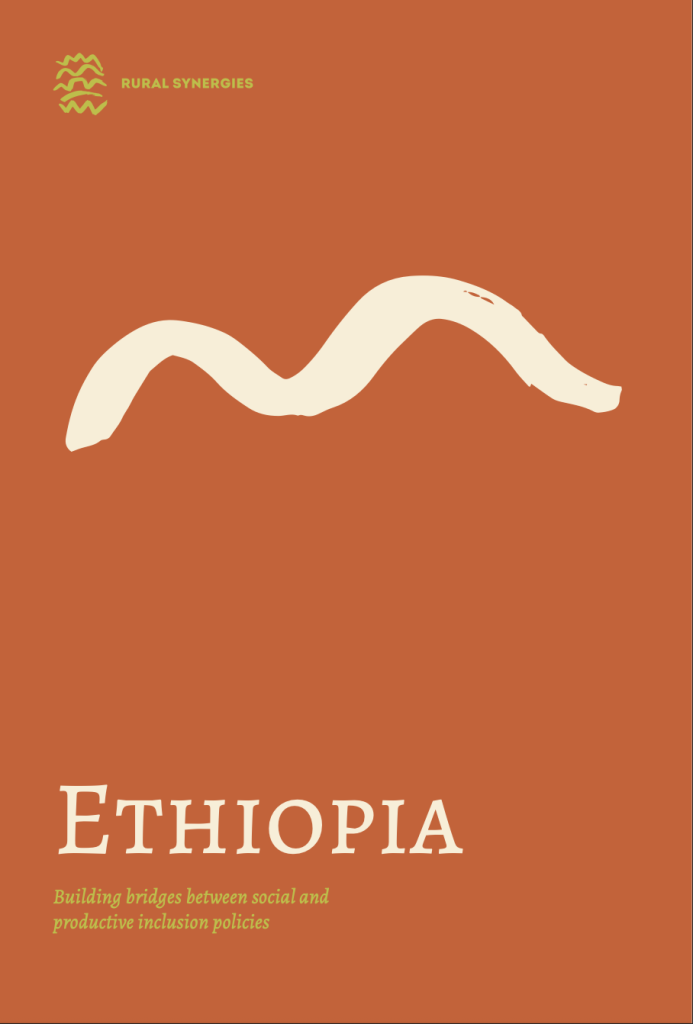
Ethiopia has a land area of 1.1 million km2 and a population of more than 100 million. Its economy is largely based on agriculture, which employs two
thirds of the population and accounts for about one third (31.2 percent) of its gdp (world development indicators). Most of the agricultural sector is based on smallholder farmers, who produce about 94
percent of the country’s food crops and 98 percent of the coffee. A sizeable proportion of the rural population depends on social protection to bridge the food gap arising from recurrent drought and other shocks. This implies that both social protection and agriculture are important sectors to address food insecurity and poverty in rural ethiopia. They should therefore be planned and implemented in an integrated and coherent manner.
Zambia: Building bridges between social and productive inclusion policies
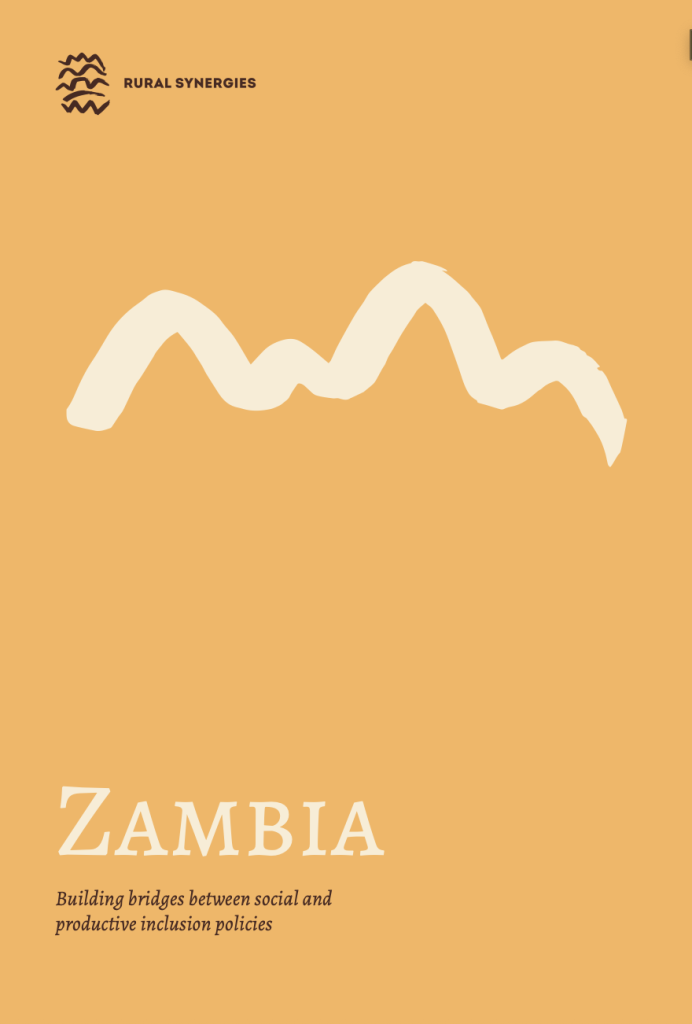
Zambia enjoyed strong economic growth between 2004 and 2014, which benefited small segments of the
urban population. Because growth was accompanied by increased inequality, its effects on poverty reduction were limited. In 2015, 58 percent of zambians were below the international poverty line of $1.90 per day and three quarters of the poor lived in rural areas. To contain
inequality, bring people out of poverty and improve the lives of the most vulnerable, the government of zambia
committed to expand social protection expenditure
in the 2019 budget by 18 percent from the previous year, following a series of consecutive expansions of this
sector. Nevertheless, in 2019 zambia still spent only 0.7 percent of the country’s gdp on social protection,
lagging behind the regional average.